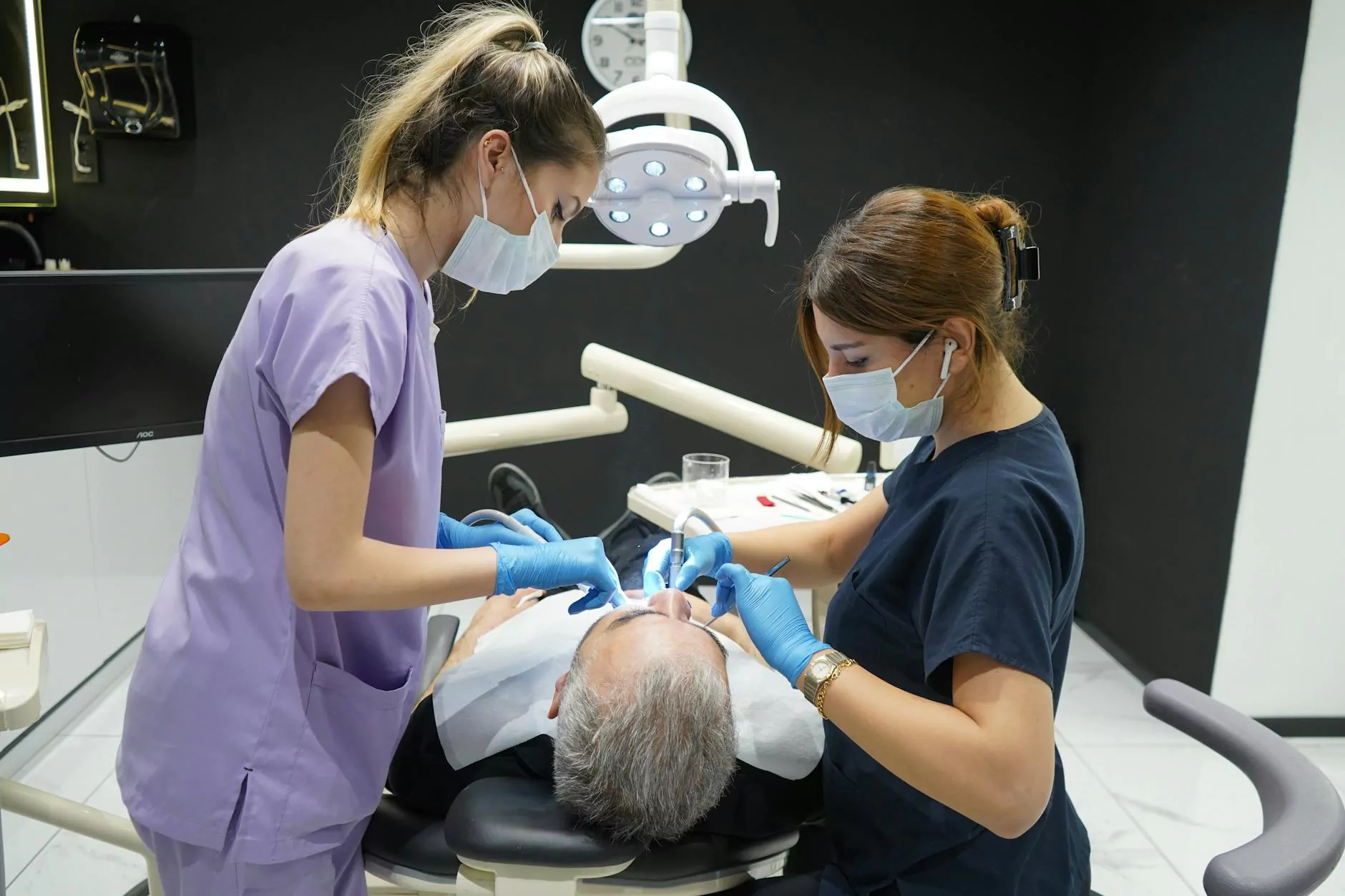The Essential Guide to Thoracic Surgeons: Your Path to Optimal Health

When it comes to understanding the complexities of our health, thoracic surgeons play an indispensable role. These highly trained specialists focus on the surgical treatment of diseases affecting the chest, including the lungs, heart, and other thoracic organs. In this comprehensive guide, we will delve deep into the field of thoracic surgery, the significance of these professionals, and how they intersect with health & medical, sports medicine, and physical therapy categories.
What is a Thoracic Surgeon?
A thoracic surgeon is a medical doctor specializing in the surgical treatment of conditions affecting the thoracic cavity. This includes a variety of organs and structures, such as:
- Lungs
- Esophagus
- Heart
- Chest wall
- Thymus
These specialists undergo rigorous training, typically completing a residency in general surgery followed by a fellowship in thoracic surgery. This extensive education equips them with the skills necessary to perform complex operations safely and effectively.
The Importance of Thoracic Surgeons in Healthcare
Thoracic surgeons are crucial in healthcare due to their expertise in managing life-threatening conditions. They play a pivotal role in the treatment of patients with:
- Thoracic tumors - Both benign and malignant tumors can develop in the chest area.
- Trauma injuries - Especially those affecting the lungs or chest that require immediate surgical intervention.
- Congenital disorders - Such as congenital diaphragmatic hernia that require corrective surgery.
- Cardiovascular diseases - Conditions that necessitate surgical solutions to improve heart function.
Common Procedures Performed by Thoracic Surgeons
A variety of surgical procedures fall under the purview of thoracic surgeons. Some of the most common operations include:
1. Lobectomy
A lobectomy involves the removal of a lobe of the lung. This procedure is often necessary for patients with lung cancer or severe lung infections.
2. Pneumonectomy
This involves the complete removal of one lung and is typically performed on patients with extensive lung cancer.
3. Esophagectomy
This surgery removes part or all of the esophagus and is performed in cases of esophageal cancer or severe reflux disease.
4. Valve repair or replacement
Thoracic surgeons are trained to repair or replace damaged heart valves, an essential procedure for patients with heart disease.
5. Video-Assisted Thoracoscopic Surgery (VATS)
This minimally invasive surgical technique allows for lung operations with smaller incisions, leading to quicker recovery times.
How Thoracic Surgeons Collaborate with Other Medical Professionals
In the multidisciplinary realm of health & medical care, thoracic surgeons frequently collaborate with other healthcare providers. This collaboration enhances patient outcomes, especially in complex cases. Key partnerships include:
1. Oncologists
In cases involving lung or esophageal cancer, thoracic surgeons work closely with oncologists to develop comprehensive treatment plans.
2. Pulmonologists
These specialists are crucial for managing chronic lung diseases, and their collaboration ensures that surgical treatments are tailored to the patient's respiratory health.
3. Cardiologists
Working alongside cardiologists allows thoracic surgeons to provide integrated care for heart conditions that may require surgical intervention.
The Connection Between Thoracic Surgery and Sports Medicine
The intersection of thoracic surgery and sports medicine is an area gaining recognition. Athletes requiring thoracic surgery due to injuries or other conditions can benefit from specialized care. Some considerations include:
- Managing sports-related lung injuries, such as pneumothorax (collapsed lung).
- Repairing chest wall injuries that could otherwise impede athletic performance.
- Addressing exercise-induced asthma with surgical options when conservative treatments fail.
The Role of Thoracic Surgeons in Physical Therapy
After surgical intervention, many patients require physical therapy to help them regain strength and function. Thoracic surgeons may work with physical therapists to create personalized rehabilitation plans that cater to individual needs, focusing on:
- Breathing exercises to improve lung capacity.
- Strength training to rebuild muscle strength post-surgery.
- Range-of-motion exercises to ensure full recovery after thoracic surgery.
Preparing for Thoracic Surgery
Preparing for surgery can be a daunting experience. Here are essential steps to consider:
1. Consultation
Schedule an in-depth consultation with your thoracic surgeon to discuss your medical history, the recommended procedure, and potential risks.
2. Preoperative Testing
Tests such as imaging studies (CT scans, MRIs), blood tests, and pulmonary function tests may be performed to assess your health status.
3. Lifestyle Modifications
If you smoke, quitting smoking is crucial. Your surgeon will provide guidance on how to prepare your body for the upcoming procedure.
Postoperative Care and Recovery
Recovery from thoracic surgery varies depending on the procedure, but some common elements include:
1. Pain Management
After surgery, pain control is vital for recovery. Discuss pain management strategies with your healthcare team.
2. Follow-Up Appointments
Regular follow-up appointments are essential to monitor your recovery and address any concerns that may arise.
3. Physical Rehabilitation
Participating in physical therapy as recommended will help you regain strength, mobility, and overall health.
Conclusion
In conclusion, thoracic surgeons are vital players in the medical field, tackling complex issues with expertise and care. Their contributions not only save lives but also improve the quality of life for countless individuals. If you or someone you know is facing surgical intervention in the thoracic region, understanding the role of a thoracic surgeon and the comprehensive care involved is crucial for a successful recovery. Your pathway to better health starts with informed decisions and professional guidance.
For more information, please visit us at Hello Physio, where we are dedicated to providing insights and care in the realms of health & medical, sports medicine, and physical therapy.









